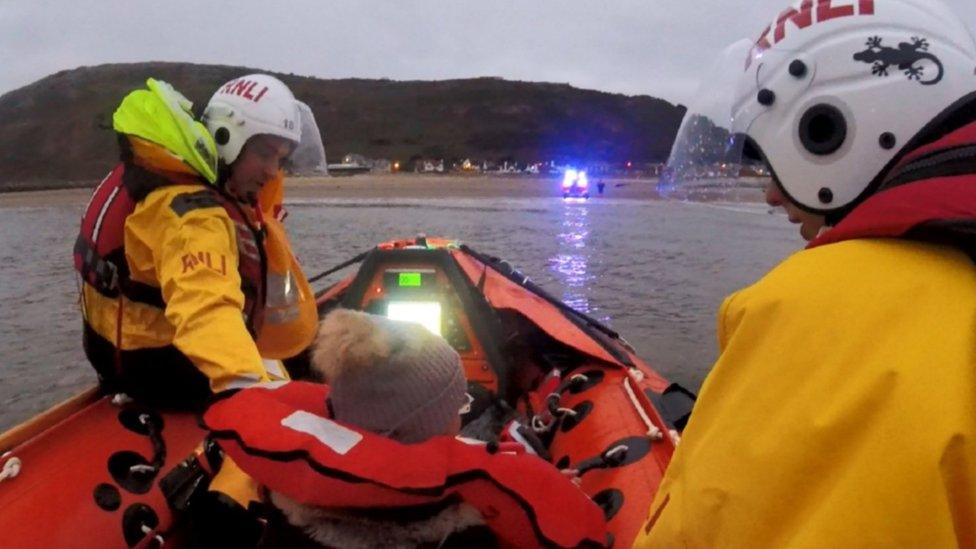Covid: RNLI Welsh beach lifeguards expect 'busiest ever' summer
- Published
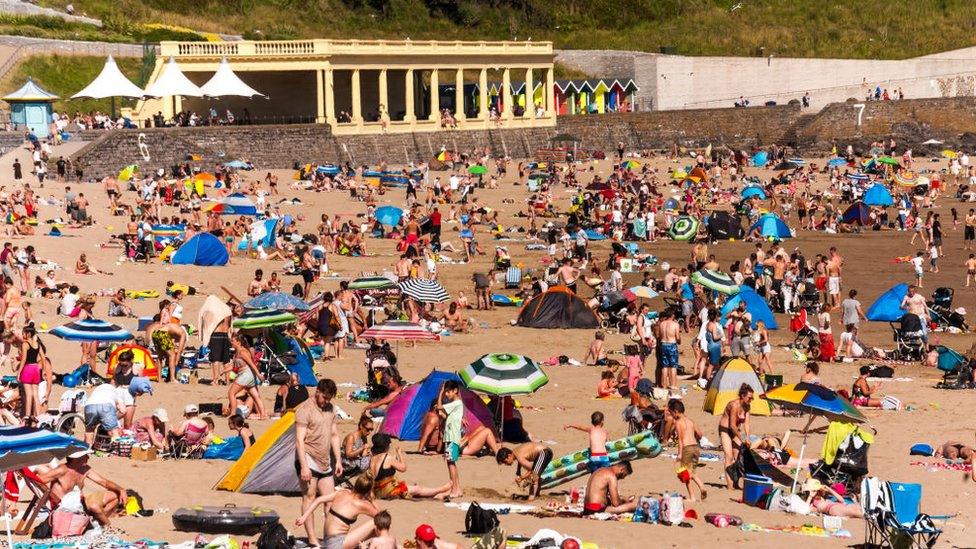
There could be crowds similar in size to those seen on Barry beach in 2017
Lifeguards are returning to Wales' most popular beaches as they prepare for their "busiest ever" summer.
People in Wales have been asked not to travel abroad this year and an RNLI-commissioned survey suggests 30 million people plan to head to UK beaches.
BBC weatherman Derek Brockway has said temperatures could hit 22C, external over the Bank Holiday weekend and half-term after the wettest May in 150 years, external.
The RNLI and Coastguard urged people to swim at beaches with lifeguard cover.
The charity believes uncertainty over foreign travel and the easing of lockdown restrictions across the UK will encourage more people to opt for "staycations".
Three-quarters of people surveyed said they expect to visit a beach on the UK coast this summer, with about half of those people likely to do so three or more times.
The RNLI have employed additional beach lifeguards and their staff have taken part in additional training to be prepared for a "very, very busy summer".
"I don't think we will be overwhelmed - we have really good training," said Ross Gribble, RNLI lifeguard supervisor for Bridgend.
"And we have taken on a couple of extra lifeguards so we can protect everyone who comes to a lifeguarded beach.
UK weather: Will we get a sunny bank holiday and half term?
"They will be relishing it, especially as we had a limited service last year."
The charity's lifeguards are returning to Rhyl and Prestatyn in Denbighshire, Rest Bay in Bridgend, Pembrey in Carmarthenshire and Newgale in Pembrokeshire.
The RNLI has already been running a service on some of Wales' busiest beaches, and people can find which beaches have lifeguard cover on the charity's website, external.
"We are expecting this summer to be the busiest ever for our lifeguards and volunteer lifeboat crews in Wales and the survey figures back that up," said Chris Cousens, head of water safety for the RNLI in Wales.
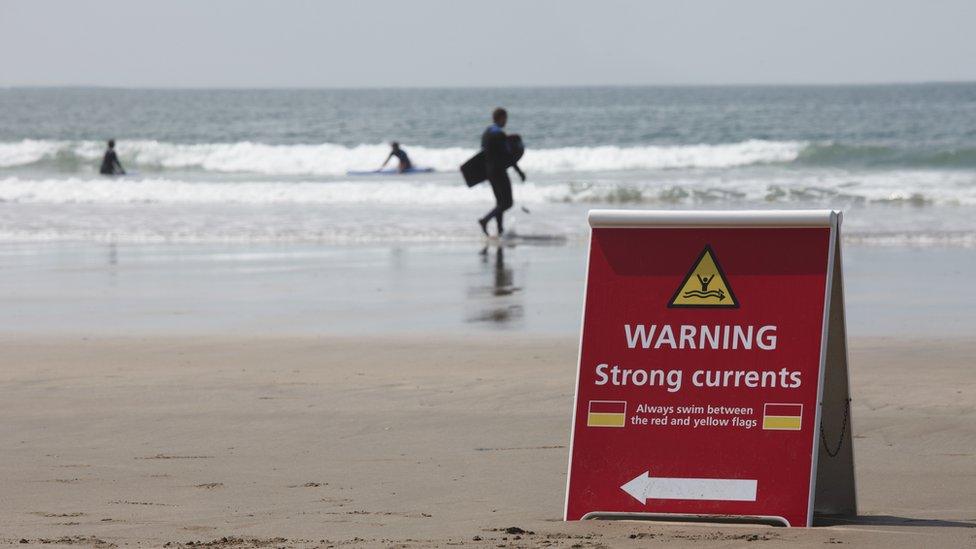
People are urged to always swim at a beach where there are lifeguards
"With its stunning scenery and spectacular beaches, we are certain people will flock to the Welsh coastline and want people to enjoy it."
It comes after the RNLI said their Welsh crews saved 70% more people last year than prior to the coronavirus pandemic as visitors numbers soared due to foreign travel restrictions.
The RNLI - which has 30 stations around the Welsh coast between Penarth and Flint - said its crews saved the lives of 24 people between June and August 2020, compared with 14 the year before.
The charity has urged people to visit beaches where lifeguards are present - and always swim between the red and yellow flags.

Lifeguards are "relishing" being back on the beach after a limited service last year due to the pandemic
"If you do get in trouble, float to live, resist the urge to thrash," explained Mr Gribble.
"Although it's sunny at the moment, the water is quite cold, so naturally your reaction is to thrash. What we say is to float on your back and make sure your breathing is controlled."
Mr Gribble added people should call 999 if someone's life is in danger, and to check the weather and tides before heading to the beach.
Watch BBC reporter Natalie Crockett try out the RNLI floating technique
In Gwynedd, where there are no RNLI lifeguards, the council has urged people to take extra care over the weekend.
"Gwynedd's coastline is breathtakingly beautiful, but it is important that everyone who visits it are aware of the dangers of the coast and prepare in advance," said councillor Gareth Thomas.

HAYLEY GOES: VACCINE FRONTLINE: Hayley goes on a fact-finding mission to discern fact from fiction
STRICTLY AMY: CROHN'S AND ME: The Welsh dancing star shows us the reality of living with Crohn's disease

- Published11 February 2022

- Published28 May 2021
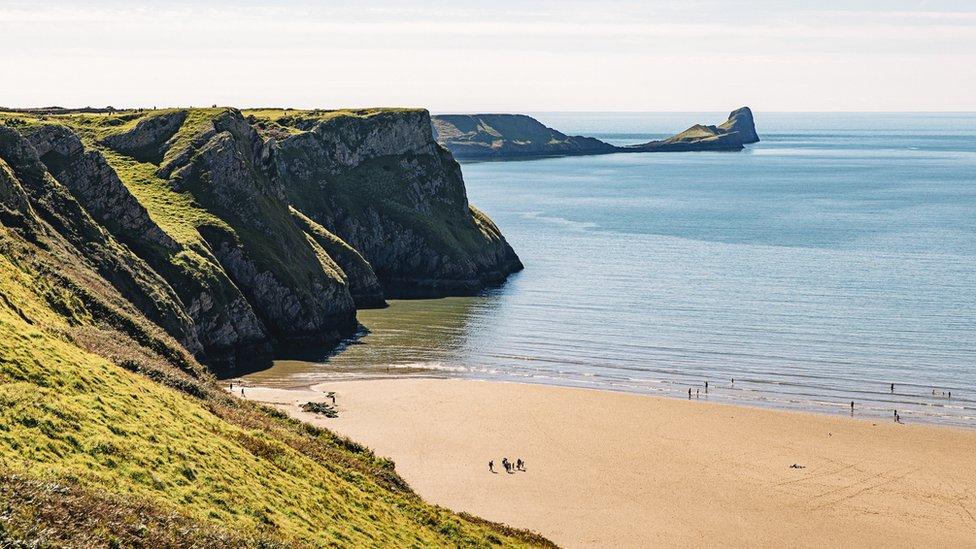
- Published27 May 2021

- Published26 May 2021
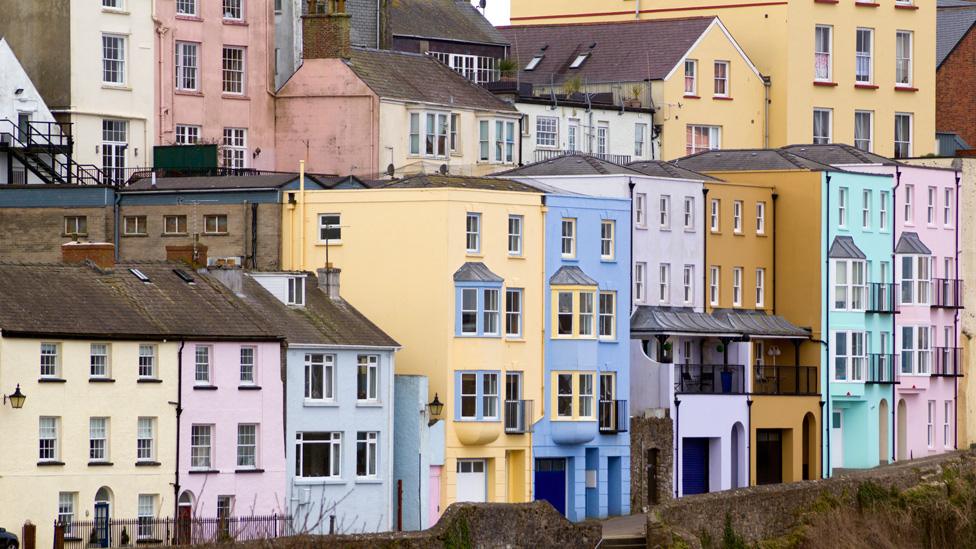
- Published1 May 2021
